Eating These 7 Foods Before Bed Will Help You Get a Better Night’s Sleep, Nutritionists Say

Wouldn’t it be lovely if you could crawl into bed each night and effortlessly fall asleep? Unfortunately, a good night’s rest can be hard to come by, especially as we get older. According to the experts at HealthDay, 28 percent of adults in the U.S. say insomnia is taking a toll on their daily lives, and nearly two-thirds report using sleep aids daily to help themselves fall or stay asleep. However, while medications can work in the short term, they won’t get to the root of your sleep problems. That’s why adopting healthy lifestyle habits, like eating nutritious foods and getting daily exercise, is a better way to address your sleep issues in the long run. And nutritionists say you may want to consider one of these foods that can help you sleep.
RELATED: This Uncommon Supplement Can Improve Your Sleep and Mood, New Study Says.
1
Walnuts
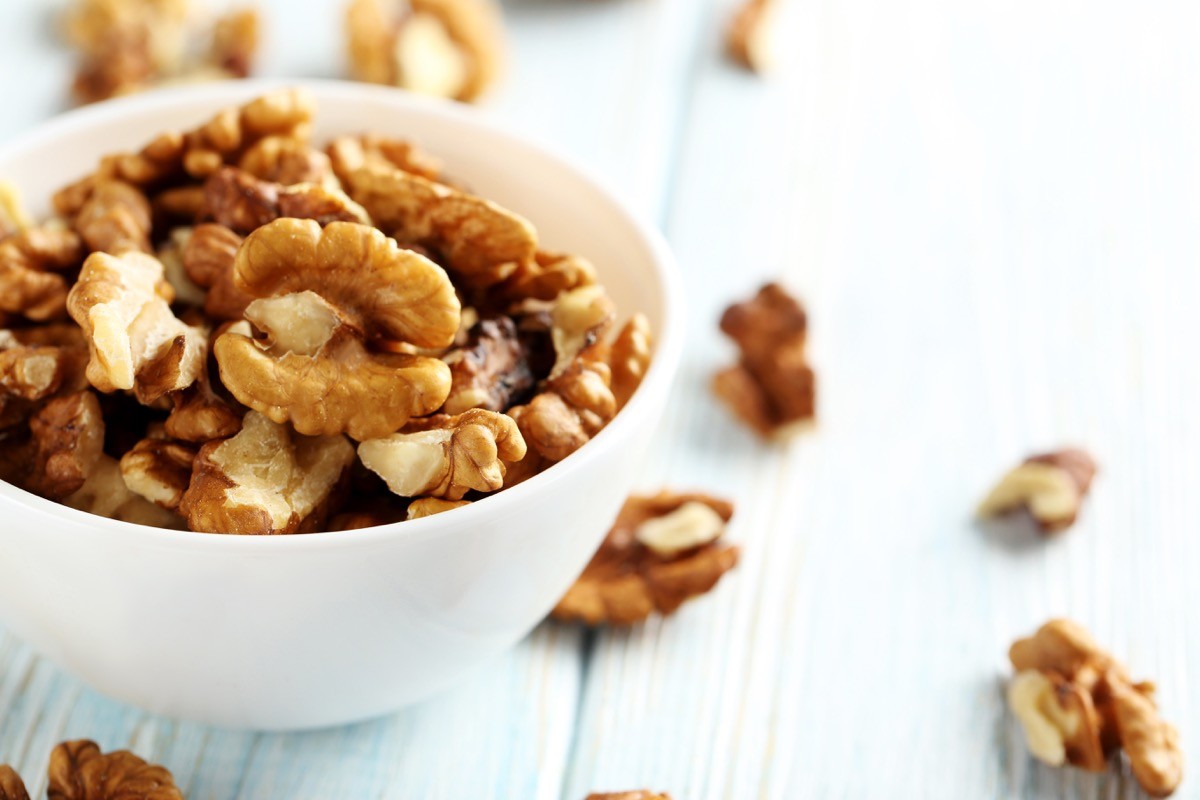
If you browse the supplement aisle at any drugstore, you’ll find the popular sleep aids magnesium and melatonin. Walnuts are high in both of these sleep-enhancing nutrients. They’re also high in healthy omega-3 fatty acids, which have been shown to improve sleep quality.
“Just one ounce of walnuts has 11 percent of the daily value for magnesium, a mineral associated with higher sleep quality,” explains Kelsey Kunik, RDN, registered dietitian and nutrition advisor for Zenmaster Wellness.
In fact, a 2022 study published in the journal Sleep found that, of 3,964 participants, those with a higher magnesium intake had better sleep quality and duration.
So feel free to munch on a handful of walnuts before bed or include them in your morning oatmeal to boost your sleep quality.
2
Bananas
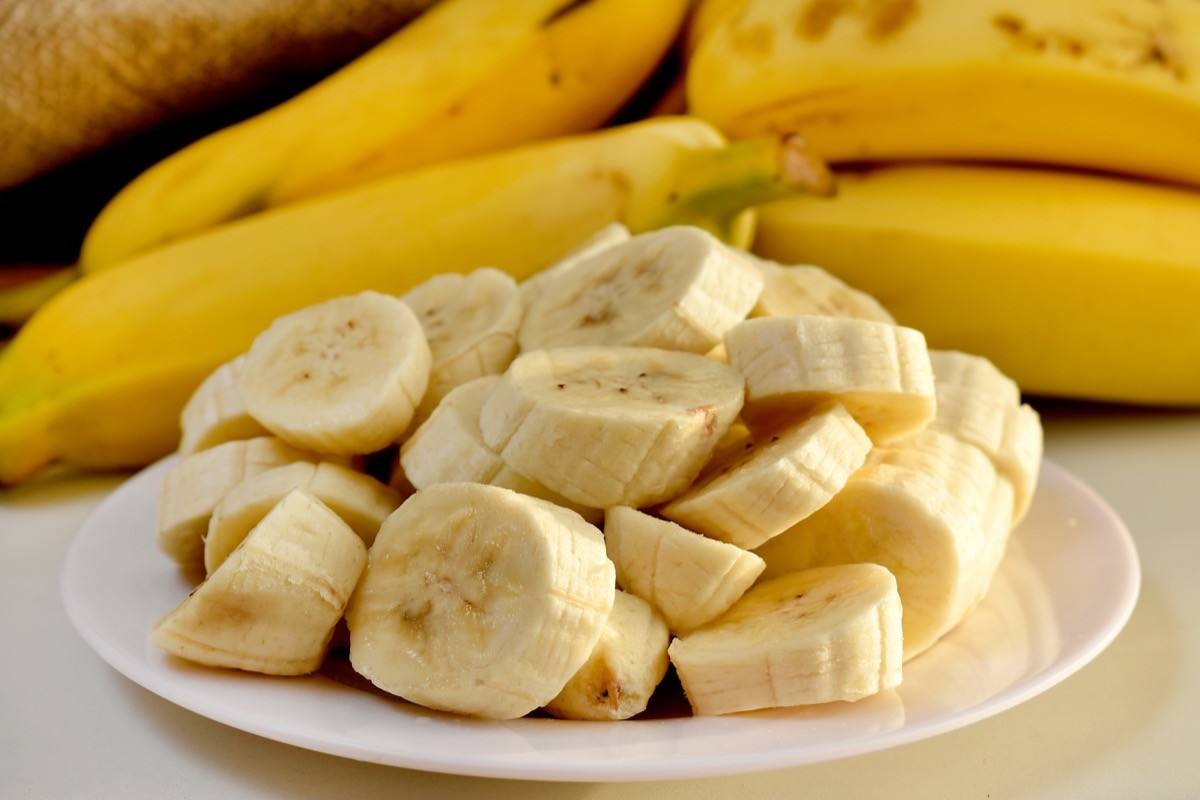
Bananas are a great source of potassium, an essential mineral and electrolyte that our hearts need to function properly.
Marc Werner, sleep expert and CEO of GhostBed, adds that potassium can help “regulate blood pressure levels and reduce stress levels before bedtime.”
Bananas are also rich in magnesium and tryptophan, notes Catherine Gervacio, a registered dietician and nutrition writer for Living Fit.
“Tryptophan is a crucial amino acid to produce serotonin, a hormone to induce sleep,” she explains. “Serotonin works with melatonin, another hormone that keeps your sleep-wake cycle regulated, so you’ll feel sleepy at regular times and wake up at a steady time.”
RELATED: 12 Best Foods to Ease Anxiety, Experts Say.
3
Oats
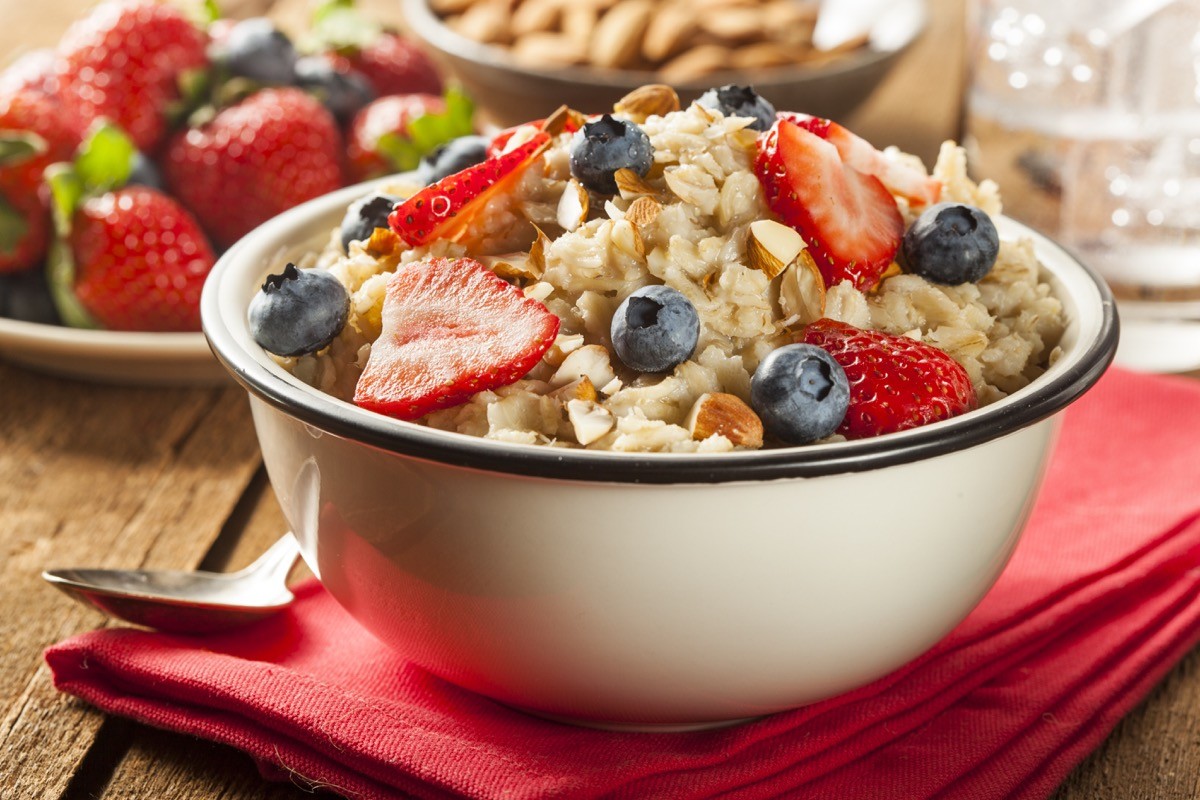
Oats are another good source of tryptophan. For maximum sleep-quality benefits, Kunik recommends flavoring your oatmeal with berries instead of sugar.
“The extra fiber in the berries will slow the digestion of carbohydrates, avoiding a sugar high and crash that could disrupt your sleep,” she points out.
Moreover, Nichole Dandrea-Russert, a nutritionist and author of the blog Purely Planted, tells Best Life: “Studies show that eating high fiber foods predict more time spent in the stage of deep, slow-wave sleep, while saturated fat and sugar may be associated with lighter, less restorative, and more disrupted sleep.”
4
Cherries
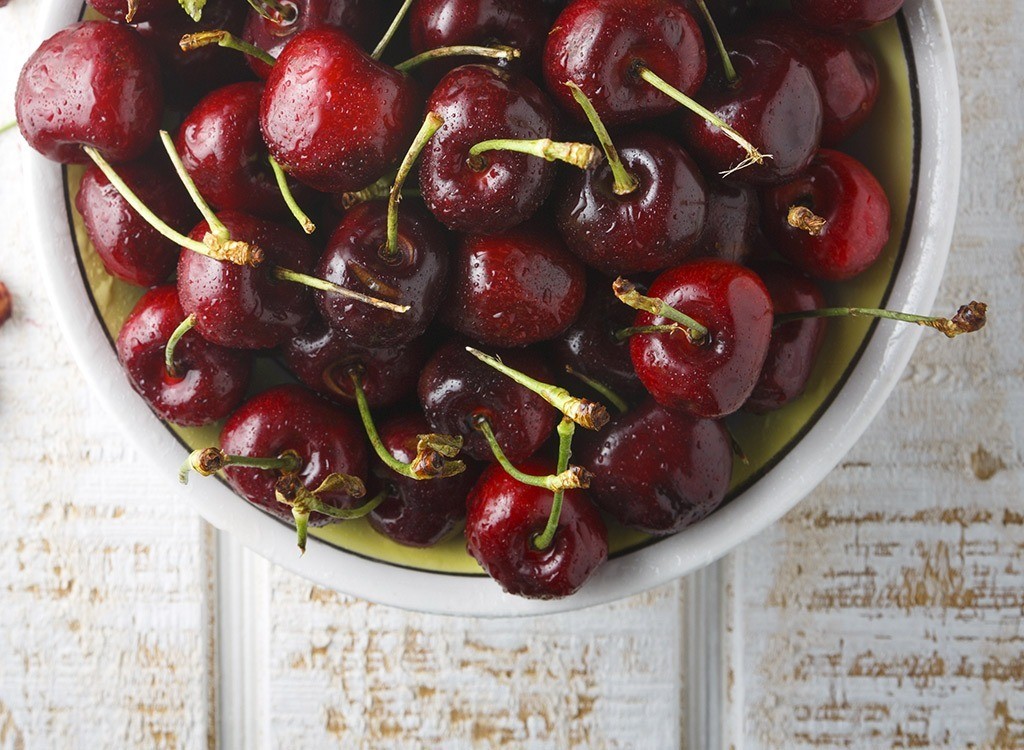
Cherries, specifically tart cherries, land on this list for their high melatonin levels.
“Eating fresh or dried tart cherries or drinking a small glass of cherry juice increases melatonin levels in the body, which helps you get to sleep a little easier,” says Lauri Leadley, founder and clinical sleep educator at Valley Sleep Center.
5
Peanut butter
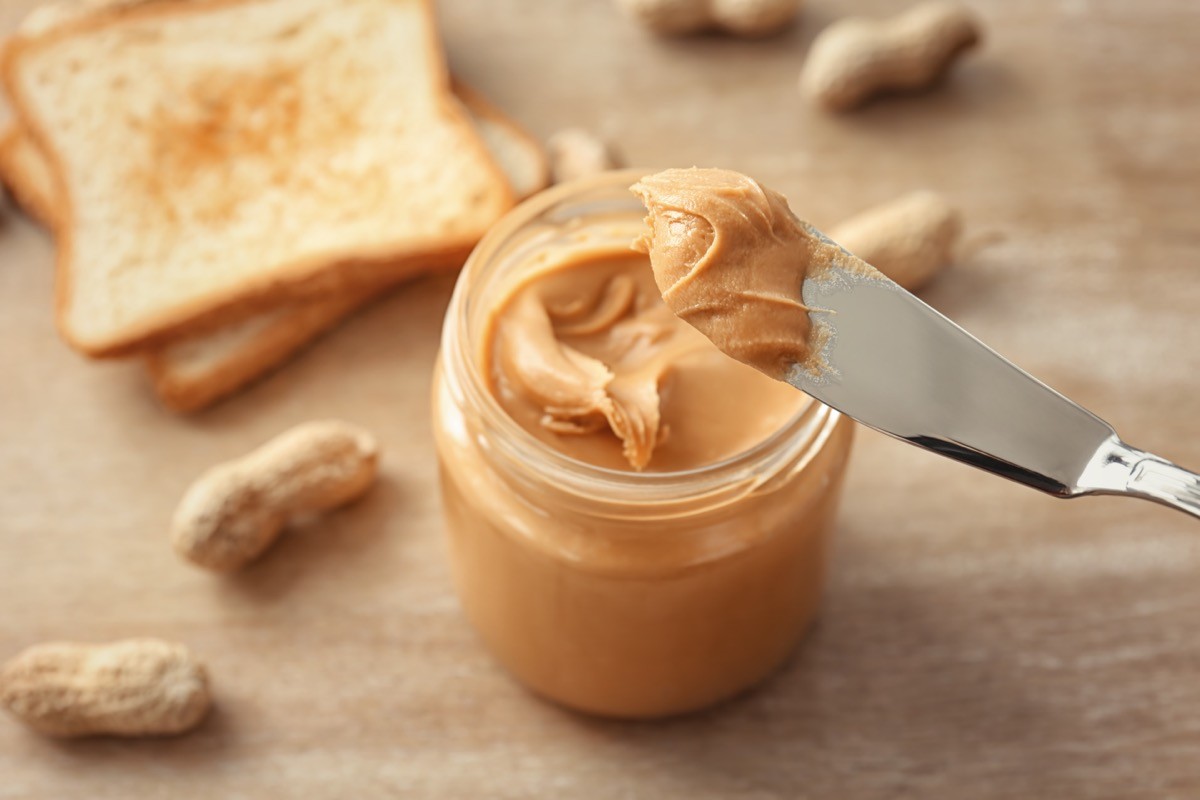
“Peanut butter makes for the perfect bedtime snack, as it’s rich in healthy fats, protein, and sleep-promoting amino acids and vitamins,” says Kunik. “The fat and protein in peanut butter will keep you full throughout the night without impacting your blood sugar.”
In addition, peanut butter is a rich source of vitamin E, which research has shown to increase sleep length and quality. Just two tablespoons contain 13 percent of your daily value of this essential nutrient for high-quality sleep.
Kunik adds that peanuts “are also a good source of tryptophan.”
RELATED: This Common Sleep Habit Could Raise Heart Attack and Stroke Risk by 26%, New Study Finds.
6
Kiwi
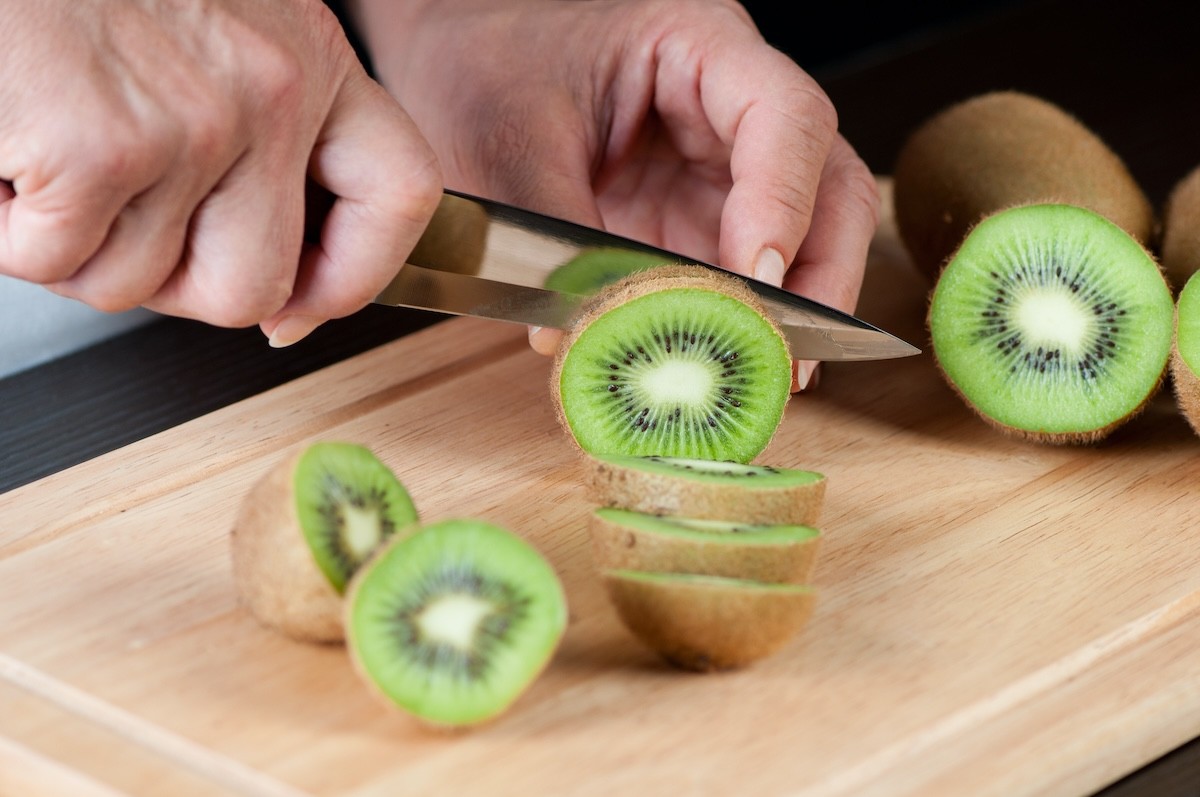
Kiwis are an excellent source of vitamin C and are known to promote heart health, boost your immune system, and improve your digestive health. This cute fruit also has had great results in studies looking into sleep improvement.
“Research shows that kiwi fruit can support falling asleep quickly and sleeping soundly,” says Dandrea-Russert. “While kiwi isn’t a direct source of melatonin, it is a source of serotonin, which is a precursor to melatonin.”
In a study published in the Asia Pacific Journal of Clinical Nutrition, participants ate two kiwis one hour before bedtime for a month and showed an increased amount of sleep time, as well as fewer sleep disturbances.
According to the study, “the total sleep time and sleep efficiency were significantly increased (13.4 percent and 5.41 percent, respectively). Kiwi fruit consumption may improve sleep onset, duration, and efficiency in adults with self-reported sleep disturbances.”
7
Salmon
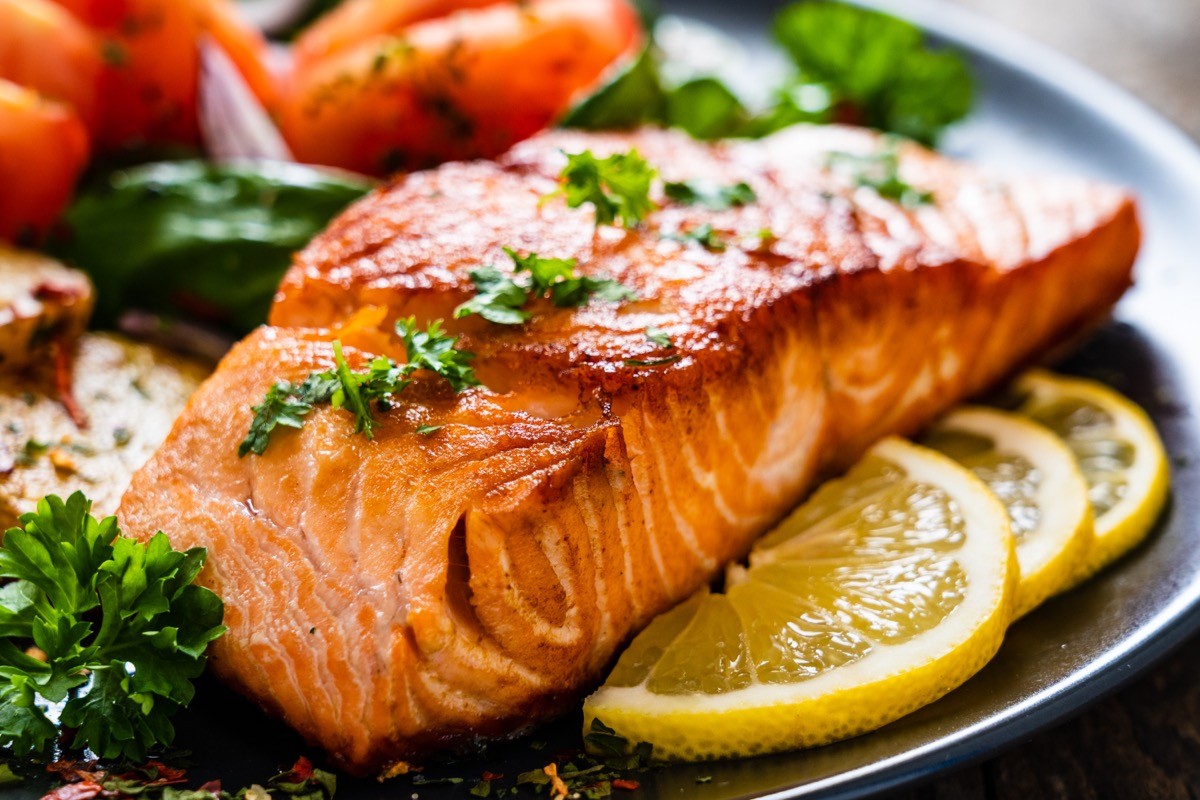
Salmon is rich in the heart-healthy omega-3 fatty acids eicosapentaenoic acid (EPA) and docosahexaenoic acid (DHA), notes Kunik, which have been shown to combat inflammation, lower blood pressure, and reduce chronic disease risk.
A study published in the Journal of Clinical Sleep Medicine found that men who ate fatty fish three times per week for six months fell asleep faster and reported better daily functioning than before including fatty fish in their diet.